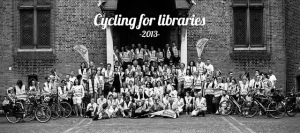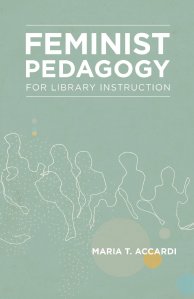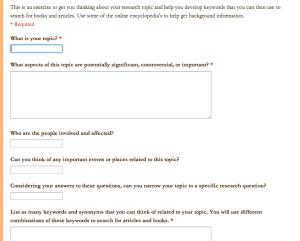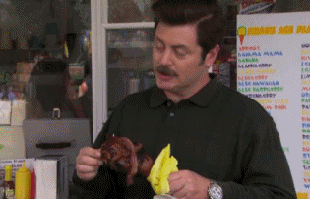This post is my #critlib homework assignment as part of the chat moderated by Kevin Seeber on feelings and why we do what we do. He had us reflect on three questions:
- Why are you a critical librarian?
- Why do you identify with these ideas?
- Why do you participate in these chats?
While I find writing to be really, really hard, I’m really grateful for this opportunity to really think about why I do what I do. My thoughts are below.
When I was in library school, I thought I was supposed to separate my own personal opinions/personality from my professional presence. That seemed to be the overwhelming advice that I got; but after some time in the profession I realized how ridiculous that is, considering there are plenty of things that I can’t hide or change about myself. As others have articulated in their homework, some aspects of our personal identities (race, ethnicity, gender, sexual orientation, class, ability, etc.) impact how we approach our work as librarians and as people. This is definitely true for me, a woman of color, a first generation American, and a feminist. This informs my approach and my interests, and is why I #critlib. For me, #critlib is more than just the Twitter chats. It’s the reason why I help out with the LIS Microaggressions project, and why I am researching intersectional feminism in LIS for the upcoming Feminist Reference Desk book edited by Maria Accardi. I love being a librarian, and I want to work towards making this profession better.
My first professional position was at a community college located in an urban setting and my job was to help students from an incredibly diverse array of backgrounds. That helped show me the important work that a librarian can do, to help people get to where they want to be. But really, I learned more about critical/radical librarianship and what it meant to be a #critlib-er once I moved to Chicago to work at UIC. Chicago is a wonderful city, it’s diverse, it’s dynamic, but it is not without its flaws. This city has plenty of problems related to inequality, but there are a lot of people who are working to make it better. Social justice activists, organizers. People who are doers, not just complainers. I also see the university as a place to educate people, and as a place for them to try and come up with solutions to societal problems. At my university, social justice is a core aspect curriculum in many of the disciplines here and it’s great to see critical pedagogy in action. UIC is also an incredibly diverse campus. When I see where the priorities lie for students here, I feel like I also don’t have a choice not to be #critlib, it’s part of my job. Students here have rallied behind the #BlackLivesMatter movement, organized and protested faculty cuts to the ethnic studies program, and they stood in solidarity with the faculty union when we went on strike. If they stand with us, then I want to stand with them and support them. These are just some of the reasons why I am a critical librarian.
I don’t see #critlib as a unified ideology, but rather a gathering place for people with similar goals to meet and talk. We really do not all come from the same educational backgrounds and it’s totally cool that we don’t all agree on everything. My hope is that through dialogue, we can at least learn and grow from each other. That’s what is so awesome about the #critlib chats, the unconferences, the meetups, and relationships that develop through this community.
I was really honored when Nicole came up with the idea to have a Twitter chat centered around critical pedagogy. I thought, this is an awesome idea and something I want to learn more about. How can we make this happen? And from there, I’ve seen #critlib grow and become so much more than that. I’m not an expert in critical theory, but as Nicole says in her post, the connection between theory and practice is why I find #critlib to be valuable. This is why I do a little extra work behind the scenes and sometimes even email pics of my cats to Nicole, Jenna, Kelly, Emily, and Violet.
Moving forward, I want to see more new faces in #critlib. I know there is this idea that one needs to be an academic or an “expert” in theory in order to participate and I want to stress that this isn’t true. I’m open to any suggestions that people have to make #critlib more inclusive. I want to see more people of color on here, I want to see more projects happen that grow out of the #critlib community, and I want to hopefully meet more #critlib community members IRL in 2016.
Major thanks to Kevin for moderating tonight’s chat!









